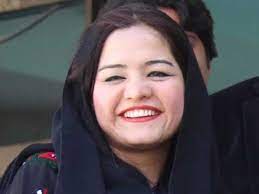This article is part of a series titled “Is there a way forward for Pakistan?” Read more about the series here.
The state of rule of law in Pakistan today is dismal to say the least. Even when laws protecting human rights exist, their poor implementation not only renders them ineffective, but also creates a sense of mistrust among the public. For the powerful, law is a privilege, but for the weak, it is a trap from which there is no escape.
In Pakistan, law enforcement agencies are not only involved in custodial torture of the accused, but are also accused of having a role in several cases of enforced disappearances in Balochistan, Sindh, and Khyber Pakhtunkhwa. No one is being held accountable for these actions.
According to the doctrine of the rule of law, law should be accessible and inexpensive to all citizens on the basis of fairness and equity, and justice should be dispensed without delay or excuse. None of these principles are being followed in Pakistan.
Pakistan’s justice system particularly fails marginalised groups. If you are from a low socioeconomic background or belong to a religious minority group, attaining justice is nearly impossible.
In 2021, World Justice Project’s Rule of Law Index ranked Pakistan 130th, indicating that the country has one of the poorest judicial systems in the world. People’s lives, properties, and dignities are frequently violated, and the institutions that are supposed to implement the law are helpless before the perpetrators.
Another important challenge facing Pakistan’s justice system is an overwhelming number of unresolved cases in the courts. Justice delayed, as they say, is justice denied. And as a result of such delays, people’s trust in the courts is eroding, shattering their confidence in the judicial system, which is why the feudal system involving jirga and panchayat (village councils) continues to run parallel to the formal justice system.
Pakistan’s justice system particularly fails marginalised groups. If you are from a low socioeconomic background or belong to a religious minority group, attaining justice is nearly impossible. Moreover, women are discouraged from reporting crimes due to the misogynistic attitudes of the police, judges, and even lawyers and society as a whole.
Also concerning is the lack of awareness among people about the rights guaranteed to them under the Constitution. In rural areas, feudal lords have connections with the administration, police and the judiciary, and are therefore able to get away with crimes. Powerful individuals conveniently use their influence to evade the law.
The state must work towards ensuring supremacy of the law, which is the only way to put the country on the path of progress. The state and its institutions should be devoted to the people of Pakistan and not to a bunch of influential individuals.
The state must abolish the feudal system while undertaking land reforms, particularly in Sindh and Balochistan, to ensure equitable distribution of wealth and an end to exploitation. Pakistan also needs provincial autonomy, investment in social services and industry, free scientific education, equitable opportunities, and the inclusion of youth, peasants, researchers, and women in policymaking. Such efforts can only be accomplished through structural reforms.

The writer is a social and political activist, working as a legal practitioner in Balochistan for the last ten years. She has a Masters in International Human Rights Law from the University of Sussex, UK.

